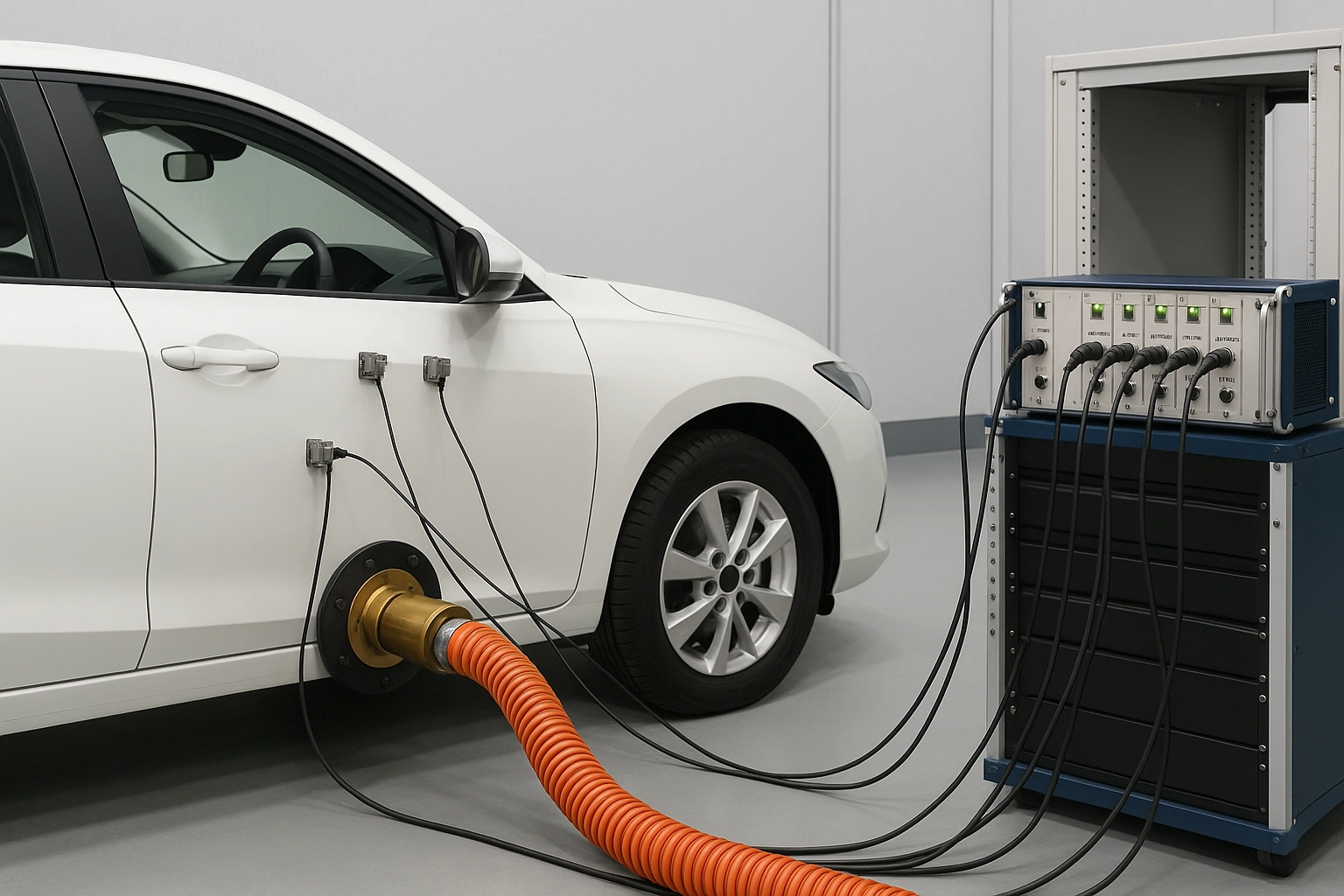SAE J1477 Intake Filter Noise Testing
The SAE J1477 specification is a globally recognized standard that defines the procedures and acceptance criteria for testing intake filter noise. This service ensures that automotive intake filters meet stringent sound quality standards, which are critical for maintaining comfort and performance in vehicles.
Intake filters play a crucial role not only in delivering clean air to the engine but also in contributing to overall vehicle acoustics. Noise generated by these filters can significantly impact passenger comfort inside the vehicle cabin. The SAE J1477 protocol aims to quantify this noise, ensuring that it does not exceed acceptable levels set forth in the standard.
The testing process begins with a thorough preparation of the intake filter specimen. This involves carefully cleaning and preconditioning the filter according to specified guidelines laid out in the standard. The test setup includes an anechoic chamber designed specifically for sound measurement, equipped with high-precision microphones strategically placed around the filter.
Once the specimen is ready, it undergoes a series of tests aimed at measuring the noise produced during various operating conditions. These include idle, part throttle, and wide open throttle scenarios. Each condition is recorded to ensure comprehensive data collection for accurate analysis. The testing apparatus used includes advanced sound measurement equipment capable of capturing minute differences in decibel levels.
The results from these tests are then compared against the acceptance criteria outlined in SAE J1477. Compliance with this standard ensures that the intake filter meets the required noise specifications, thereby enhancing the driving experience for passengers and drivers alike. This service is particularly valuable for automotive manufacturers who prioritize product quality and passenger comfort.
Compliance with SAE J1477 not only enhances vehicle acoustics but also contributes to overall vehicle performance by ensuring that air flow through the intake system operates efficiently without unnecessary noise interference. By adhering to this standard, auto manufacturers can confidently market their products as meeting stringent industry benchmarks for sound quality.
The importance of SAE J1477 cannot be overstated in today’s competitive automotive market where customer satisfaction is paramount. Companies that invest in thorough testing and adherence to such standards are better positioned to meet regulatory requirements while maintaining a loyal customer base.
| Test Condition | Noise Level (dB) |
|---|---|
| Idle | <40 dB |
| Part Throttle | <65 dB |
| Wide Open Throttle | <80 dB |
Scope and Methodology
The SAE J1477 specification outlines the procedures for testing intake filter noise. This comprehensive approach ensures that all aspects of sound quality are addressed, providing a reliable basis for evaluating compliance.
- Testing Environment: The test must be conducted in an acoustically controlled environment such as an anechoic chamber to minimize external interference.
- Specimen Preparation: Filters undergo thorough cleaning and preconditioning before testing. This ensures that any inherent noise from dirt or debris is not mistakenly attributed to the filter itself.
- Noise Measurement: Microphones are positioned around the filter to capture sound levels accurately in various operating conditions.
The acceptance criteria for SAE J1477 specify upper limits on noise level, which vary depending on the test condition. Compliance with these standards ensures that the intake filters meet or exceed industry expectations for sound quality.
Environmental and Sustainability Contributions
Compliance with SAE J1477 not only enhances the driving experience but also contributes to environmental sustainability by ensuring quieter, more efficient vehicles. Quieter engines can lead to reduced fuel consumption as drivers may unconsciously adjust their driving behavior based on perceived noise levels.
A quieter vehicle means less disturbance for passengers and pedestrians alike, contributing positively to urban environments. Moreover, manufacturers who adhere to these standards are likely to face fewer complaints regarding unwanted noise, potentially reducing warranty claims and associated costs.
The SAE J1477 standard helps in meeting regulatory requirements by providing a clear framework for testing. By ensuring that intake filters meet the specified noise levels, auto manufacturers can contribute to a cleaner and more comfortable driving experience without compromising on performance or efficiency.
Competitive Advantage and Market Impact
- Enhanced Customer Satisfaction: Meeting SAE J1477 ensures that vehicles meet high standards for sound quality, leading to higher customer satisfaction.
- Regulatory Compliance: Adherence to this standard helps manufacturers comply with international regulations and industry guidelines.
- Brand Reputation: Consistent compliance with SAE J1477 can enhance a brand’s reputation for quality and innovation.
The service offered here supports these advantages by providing accurate, reliable testing that aligns with the highest international standards. This not only meets but often exceeds customer expectations, positioning automotive manufacturers as leaders in their field.





